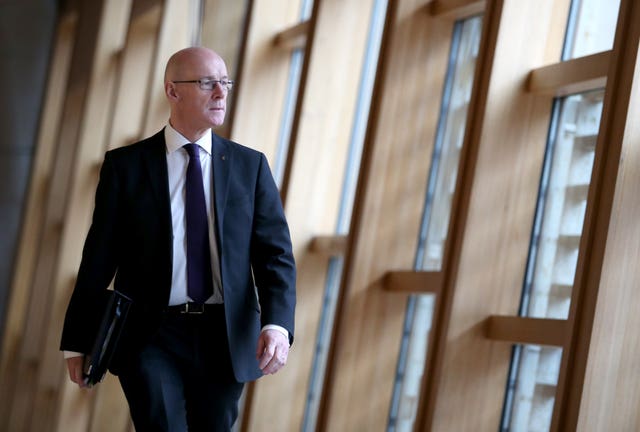
An education professor has told MSPs some Scottish schools are using assessments in ways which are “not ethical”, such as the use of nursery data to stream primary one pupils.
Giving evidence on the controversial introduction of Scottish National Standardised Assessment (SNSA), Strathclyde University’s Sue Ellis said there is a need for “good standardised data” – but also for a robust set of ethics surrounding how the data is used.
She said some schools are using standardised data for streaming pupils, and some are using formative data from nurseries to put pupils at a similar level together as they enter primary one – something she said “enshrines disadvantage and is not an ethical use of data”.

She said some schools are using standardised data for streaming and setting and are also using formative data from nurseries to set on entry to primary one, which “enshrines disadvantage and is not an ethical use of data”.
She said: “Some of the uses [of both standardised and non-standardised tests] I see that are happening in schools at the moment are not ethical.
“I actually see the introduction of a national assessment as an opportunity to open that up for debate and to get a much better use of assessment, one that actually works for children and parents.”
She told Holyrood’s Education Committee that a “popular literacy scheme” recommends primary four children struggling with reading are sent to primary two for literacy lessons – a “daily walk of shame… detrimental to their health and wellbeing”.
She said the national standardised tests could perhaps in years to come predict children’s future learning, but this could take 15 years.
She added: “So until that point the ethical consideration has to do no harm.
“You don’t set, you don’t stream, you don’t put children into catch-up programmes that remove them from the main body of the class and put them in a different category from other children on the basis of one snapshot.”

Some teachers, education unions and all opposition parties oppose standardised tests for primary one pupils which were introduced in 2017 to help close the attainment gap, and the assessments are said to have left some youngsters in tears.
Following a parliamentary vote to halt the tests, not binding on the Scottish Government, Education Secretary John Swinney instigated an independent review into the issue.
Now, the Liberal Democrats have called on him to apologise for “fabricating fictional support” for the tests.
Mr Swinney said in August that there are “people who emphatically argue for P1 assessments”.
In response to questioning from the Lib Dems, the Scottish Government named academics including Dylan Wiliam, emeritus professor of educational assessment at University College London, as evidence for his statement.
But Mr Wiliam told The Herald newspaper: “This is a substantial, and I would say perverse, misrepresentation of my work.
“The kind of standardised assessments used in the Scottish national assessments of primary one children are simply incapable of providing the kind of information that I think teachers would need in order to teach better.”
He added the assessments “are almost completely useless as guides to the achievement and needs of five-year-olds”, and he questioned whether the Government was being “deliberately misleading”.
Lib Dem education spokesman Tavish Scott said: “This is nothing short of unbelievable.
“The Scottish Government has brazenly twisted the work of an esteemed academic who adamantly opposes their national testing policy.”
He said Mr Swinney must “immediately come to Parliament and apologise for this falsehood”.
A Scottish Government spokesman said: “We referenced Professor Wiliam as a supporter of a formative approach to assessment.
“It was not our intention to imply he supported SNSA and it is clear that he does not.”
He said the tests are designed to provide information to teachers on literacy and numeracy, used with other evidence to help shape teaching and support judgements on children’s progress.


Comments: Our rules
We want our comments to be a lively and valuable part of our community - a place where readers can debate and engage with the most important local issues. The ability to comment on our stories is a privilege, not a right, however, and that privilege may be withdrawn if it is abused or misused.
Please report any comments that break our rules.
Read the rules here